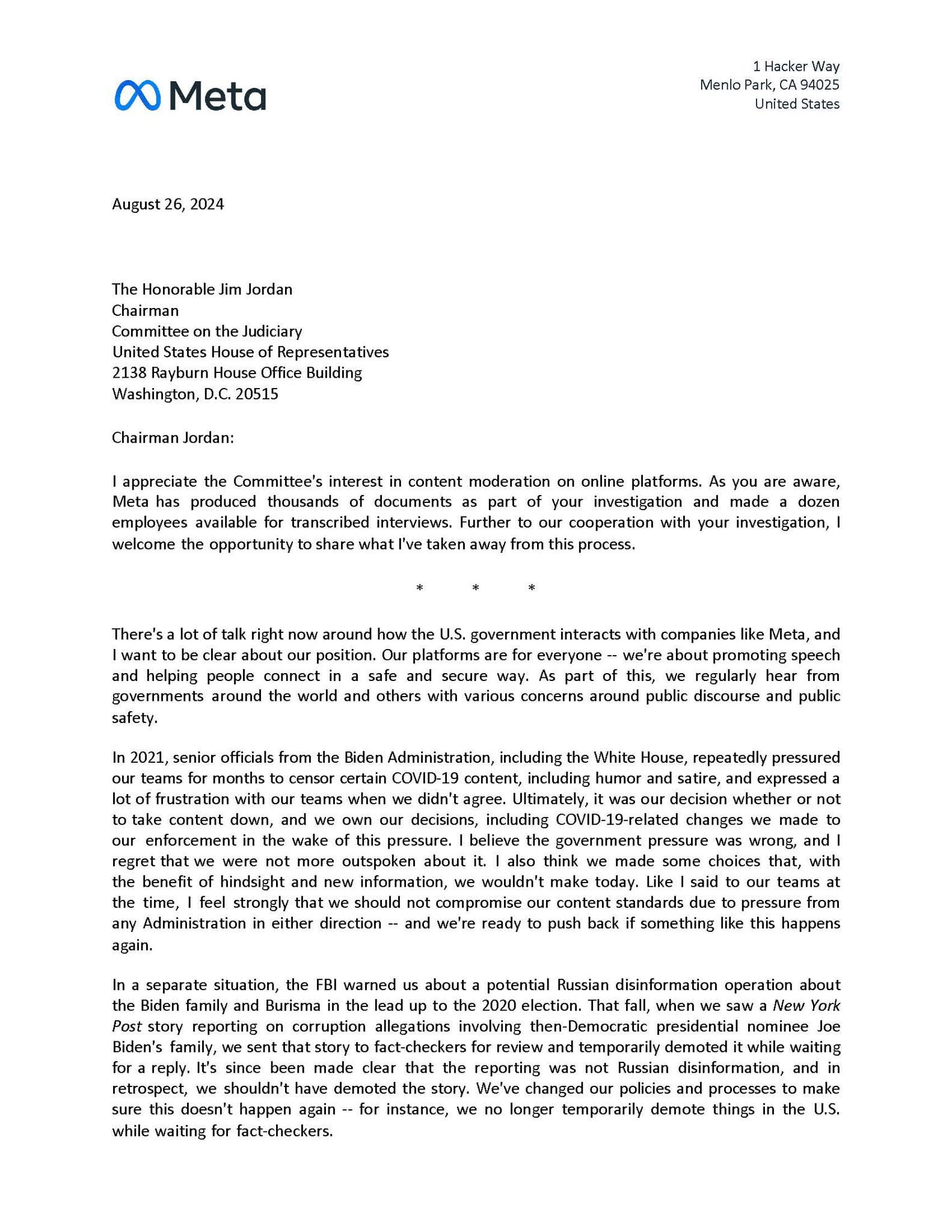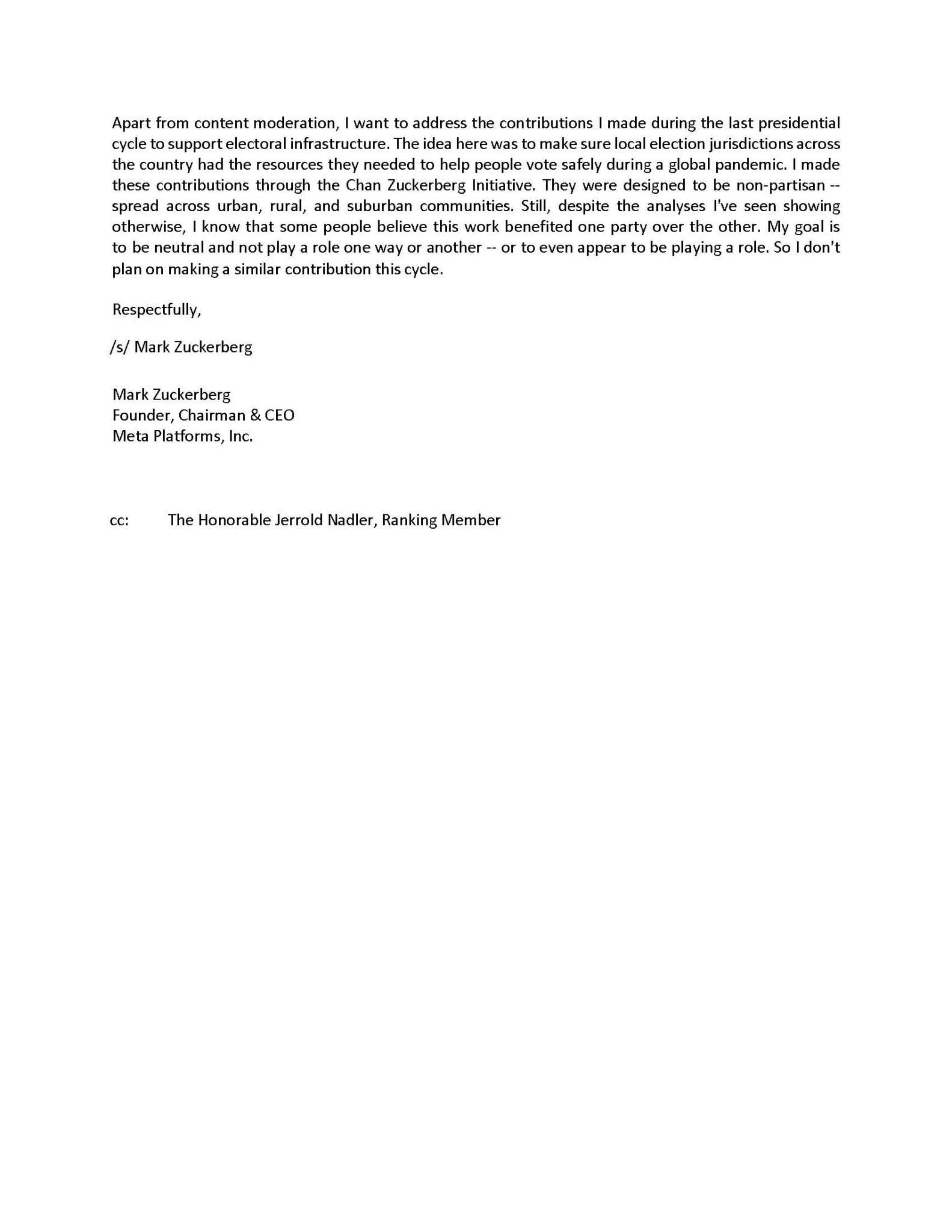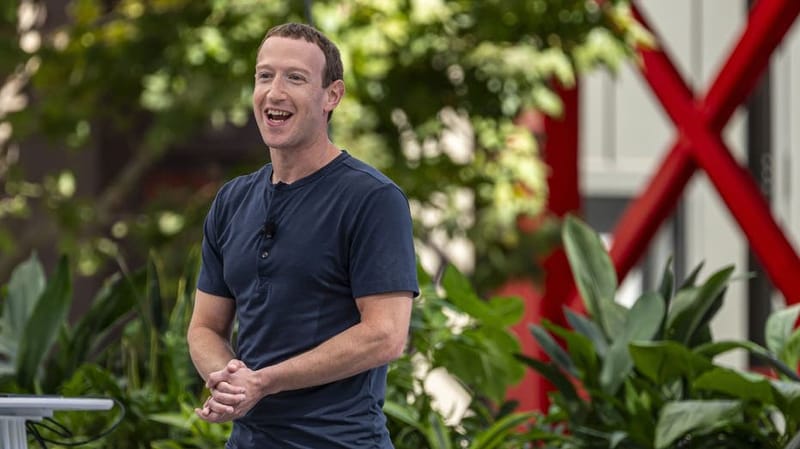Mark Zuckerberg Confirms Biden-Harris Administration Pressured Facebook to Censor Content
In a significant admission, Mark Zuckerberg, the CEO of Meta Platforms and founder of Facebook, has publicly acknowledged that his company faced pressure from the Biden-Harris administration to censor content on its platform. This revelation comes amidst ongoing scrutiny over the relationship between social media giants and government entities regarding
In a significant admission, Mark Zuckerberg, the CEO of Meta Platforms and founder of Facebook, has publicly acknowledged that his company faced pressure from the Biden-Harris administration to censor content on its platform. This revelation comes amidst ongoing scrutiny over the relationship between social media giants and government entities regarding content moderation, especially around sensitive political topics.
Zuckerberg's admission was made in a letter addressed to Judiciary Committee Chair Jim Jordan, as part of an investigation into how the Biden administration allegedly influenced social media companies to suppress certain narratives, particularly those related to the 2020 election and health information during the COVID-19 pandemic.


The CEO detailed that the administration had repeatedly urged Meta to remove or suppress content, including humor and satire about COVID-19, which led to internal discussions and decisions on content moderation. Zuckerberg expressed regret over some of these decisions, particularly the handling of the Hunter Biden laptop story, which was initially flagged by the FBI as potential Russian disinformation but later proven to be authentic.
"Senior officials from the Biden Administration, including the White House, repeatedly pressured our teams for months to censor certain COVID-19 content," Zuckerberg wrote, emphasizing his belief that such pressure was inappropriate and that Meta should not compromise its content standards due to governmental influence.
This admission follows a series of legal and political battles where government pressure on tech companies for content moderation has been a focal point. Critics argue that such actions blur the lines between government and private enterprise, potentially violating First Amendment rights by indirectly influencing what content users see or are allowed to post.
Zuckerberg's letter also touched on his decision to not donate to election infrastructure this cycle, commonly referred to as "Zuckerbucks," after criticisms that these funds might have influenced previous elections. He stated a commitment to resisting any future governmental pressures on content moderation, signaling a potential shift in how Meta might handle such situations moving forward.
The implications of Zuckerberg's admission are far-reaching, potentially fueling further investigations into the interactions between tech companies and government bodies. It also underscores the ongoing debate about the role of social media in democracy, freedom of speech, and the extent to which government should, or legally can, influence digital content moderation.
This development is likely to intensify calls for clearer regulations on how governments and tech firms interact, especially concerning content that could sway public opinion or elections. As the 2024 election approaches, the eyes of the public, lawmakers, and advocacy groups are keenly focused on how these dynamics will play out, ensuring that transparency and accountability remain at the forefront of digital governance discussions.


